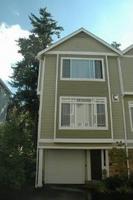10-15% Price Increases In Seattle "Modest"
Here's yet another story for you with the premise that Seattle is not in a bubble at all. This one comes courtesy of the Seattle P-I.
Home prices in some parts of the country might be primed for a decline, putting a drag on the nation's economy, but Seattle apparently could avoid the problem of a price bubble.What kind of insane world is it when 10 to 15 percent per year is considered "modest"? Granted, they said "relatively," but to me just because 10 to 15 percent is less than the increases in Boston or Florida doesn't mean we're not in a bubble, just that we're in somewhat less of a bubble.
...
But economists and real estate analysts who study the Seattle-area market believe it isn't part of that phenomenon.
Rather, they said, the Seattle area is seeing relatively modest home appreciation rates -- in the neighborhood of 10 to 15 percent per year. Those rates are a product of an inventory shortage coupled with demand, they said.
Douglas Pedersen, a Seattle economist, agreed that the area housing market is not seeing the extreme home appreciation rates of other cities. But affordability, he said, is an issue for some potential buyers in the region.Hmm, where have I heard that concern before? Oh yeah, here. And here.
"We have high home prices relative to household incomes," he said.
(Seattle P-I, 09.30.2005)





